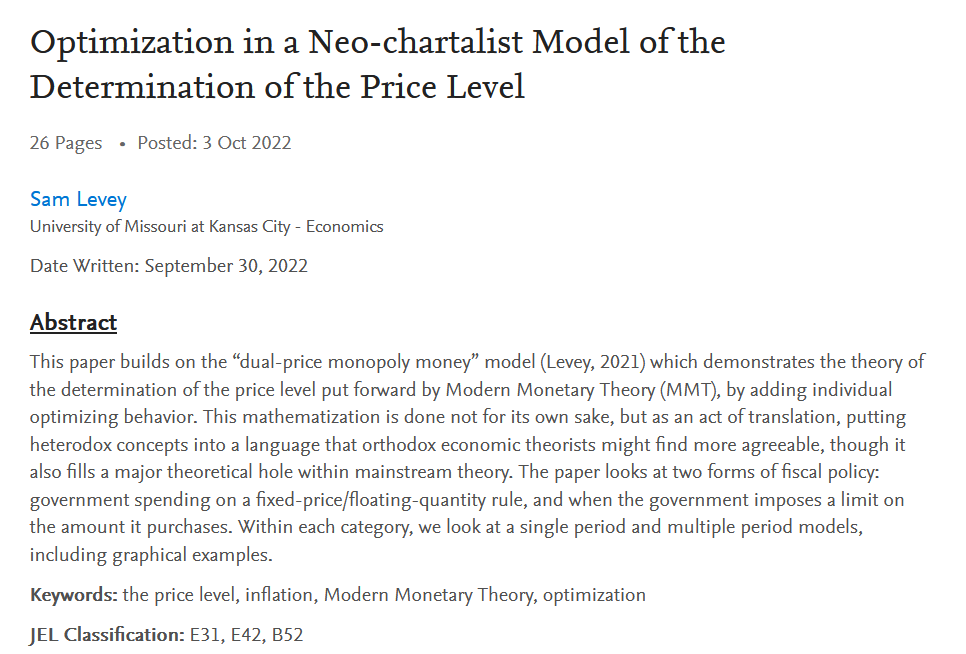Mainstream economics says 2 different things about gov debt sustainability. In this thread I'll look at the more common view.
It says that it must be bad if the debt-to-GDP ratio goes to infinity. A little bit of math then shows that for a given size primary deficit (the part /1
It says that it must be bad if the debt-to-GDP ratio goes to infinity. A little bit of math then shows that for a given size primary deficit (the part /1
of the deficit before interest payments), the debt won't go to infinity if the interest rate on the debt is less than the growth rate of GDP
This whole concept is bad because it neglects feedbacks from the debt to the primary deficit. A gov deficit implies /2
This whole concept is bad because it neglects feedbacks from the debt to the primary deficit. A gov deficit implies /2
a non-gov surplus: if the government is issuing liabilities, then the private sector is accumulating them as financial assets. But as those savings increase, the desire to increase them further eventually goes down (think about it: it'd be cool to have 5x your income saved, /3
but do you really want 50,000x your income saved?? No, go spend some of it!)
At some point, people will refuse to accept more (net) savings, and so the gov won't be able to run deficits anymore: its budget will be *forced* into surplus by the "automatic stabilizers." /4
At some point, people will refuse to accept more (net) savings, and so the gov won't be able to run deficits anymore: its budget will be *forced* into surplus by the "automatic stabilizers." /4
So, IMO, the interest rate, growth rate, or even whether the debt is trending up or down, don't actually matter for "debt sustainability." What matters is whether the automatic stabilizers are good enough to move the budget to surplus **without inflation** when the time comes /5
that the private sector decides it would rather run down its savings instead of accumulate more.
Let me put it another way: it *would* be really bad if the debt were huge relative to GDP, but there's no way for it to actually get there, so it doesn't actually matter. /Fine
Let me put it another way: it *would* be really bad if the debt were huge relative to GDP, but there's no way for it to actually get there, so it doesn't actually matter. /Fine
• • •
Missing some Tweet in this thread? You can try to
force a refresh












